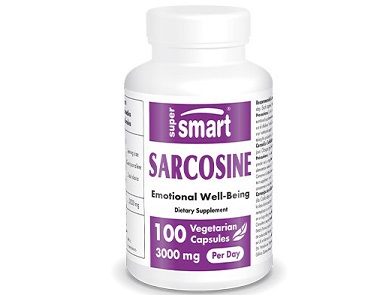COVID-19 News: Long COVID Patients With Chronic Fatigue Found To Have Metabolomic And Immune Alterations! Sarcosine And Serine Supplements Help
Nikhil Prasad Fact checked by:Thailand Medical News Team Jan 18, 2024 1 year, 11 months, 3 weeks, 16 hours, 36 minutes ago
COVID-19 News: The global impact of the COVID-19 pandemic has led to unprecedented research efforts aimed at understanding the virus's long-term effects. A significant subset of individuals recovering from SARS-CoV-2 infection experiences lingering symptoms, a condition termed Long COVID (LC). Recent studies have identified similarities between LC and myalgic encephalomyelitis or chronic fatigue syndrome (ME/CFS), emphasizing the need for a deeper understanding of LC pathophysiology. In this
COVID-19 News report, we delve into a groundbreaking study conducted by the Division of Foundational Sciences and the Division of Rheumatology at the University of Alberta, Canada, shedding light on metabolomic and immune alterations in LC patients. Furthermore, the study explores the potential therapeutic implications of sarcosine and serine supplementation.
 Sarcosine And Serine Supplements Can Help
Sarcosine And Serine Supplements Can Help
Long COVID Patients With Chronic Fatigue
The Pervasiveness of Long COVID
A staggering 36% of COVID-19 patients continue to experience symptoms beyond 3-6 months post-acute infection, with approximately 10% enduring lingering effects for over a year. These symptoms bear a striking resemblance to ME/CFS and may manifest as systemic autoimmune rheumatic diseases (SARDs). The study emphasizes the disproportionate impact of LC on females, with nearly 70% of LC patients in the cohort being female.
Exploring the Metabolomic Landscape
To unravel the complexities of LC, researchers conducted a meticulous analysis of metabolites and soluble biomarkers in plasma from LC individuals, comparing them to recovered individuals without LC, acute COVID-19 patients, and SARS-CoV-2 unexposed healthy individuals. Notably, LC patients exhibited persistent metabolomic abnormalities even 12 months after the acute COVID-19 phase. Intriguingly, the study identified a significant reduction in sarcosine and serine concentrations in LC patients, inversely correlated with depression, anxiety, and cognitive dysfunction scores.
Differential Metabolomic Profile
The metabolomic analysis unveiled distinct profiles for LC patients compared to recovered and healthy individuals. LC patients presented alterations in various metabolic pathways, hinting at potential long-lasting impacts on organ functionality. Specific changes included reduced levels of key metabolites such as aspartate, uracil, serine, and sarcosine, along with an elevation in others. Importantly, these alterations persisted even in the recovered group, signifying a prolonged metabolomic recovery period for SARS-CoV-2-infected individuals.
Immunobiology and Pathophysiology of Long COVID
The study delved into potential mechanisms underlying LC, considering the role of chronic low-grade neuroinflammation. SARS-CoV-2, capable of reaching neural tissue through various pathways, may induce chronic hypoxic changes in the brain, contributing to neuropsychiatric symptoms. Additionally, a broad immune response triggered by th
e initial infection could result in inflammation, activating signals that lead to fatigue. Impaired energy production, oxidative stress, and glycolytic T cell metabolism were proposed as factors contributing to idiopathic ME/CFS.
Chronic Inflammation and Immune Dysregulation
The study aimed to systematically follow a cohort of individuals for over 12 months post-acute SARS-CoV-2 infection, comparing them with recovered individuals and healthy controls. LC patients exhibited a dysregulated and inflammatory immune response, characterized by elevated pro-inflammatory cytokines and autoantibodies. Notably, the study detected significant levels of anti-CaSR antibodies, suggesting a potential link to hypocalcemia observed in COVID-19 patients.
Sarcosine and Serine as Therapeutic Avenues
The observation of reduced sarcosine and serine concentrations in LC patients prompted an exploration of their potential therapeutic implications. The study found an inverse correlation between these metabolites and clinical symptoms such as cognitive dysfunction and depression. This suggests that sarcosine and serine supplementations might hold promise as therapeutic interventions for LC patients, potentially addressing neurological and psychiatric manifestations.
Insights into Metabolic Pathways
A detailed examination of metabolic pathways in LC patients revealed substantial alterations, affecting amino acid and nitrogen metabolism, among others. Importantly, the study noted a reduction in glutamine and ornithine plasma levels, indicating disturbances consistent with chronic fatigue syndrome. The decrease in serine concentration and its association with depression and anxiety underscored the importance of recognizing serine deficiency in LC patients.
Implications for Mitochondrial Dysfunction
The study implicated mitochondrial dysfunction in LC, with lower ATP levels observed in both acute and long-term phases. The lower plasma ATP in LC patients may contribute to organ dysfunction, particularly in high energy-consuming organs like the brain, liver, heart, and skeletal muscles. These findings align with reports of mitochondrial dysfunction in ME/CFS, suggesting a potential link between ATP levels and the delayed tissue repair process in LC.
Discussion and Future Directions
The study provides a nuanced understanding of the metabolomic and immune alterations in LC patients, highlighting potential therapeutic avenues. However, several limitations, including the single-centered nature of the study and the need for larger cohorts, underscore the necessity for further research. The article concludes by emphasizing the importance of ongoing investigations and clinical trials to validate the efficacy of sarcosine and serine supplementations in addressing the complexities of Long COVID.
Conclusion
In unraveling the mysteries of Long COVID, this groundbreaking study offers valuable insights into the persisting metabolomic and immune alterations in affected individuals. The identification of reduced sarcosine and serine concentrations opens doors to potential therapeutic interventions, offering hope to those grappling with cognitive dysfunction, anxiety, and depression. As the world grapples with the aftermath of the COVID-19 pandemic, understanding and addressing the complexities of Long COVID will remain a crucial frontier in medical research and patient care.
The study findings were published in the peer reviewed journal: Frontiers In Immunology.
https://www.frontiersin.org/articles/10.3389/fimmu.2024.1341843/full
For the latest
COVID-19 News, keep on logging to Thailand Medical News.
